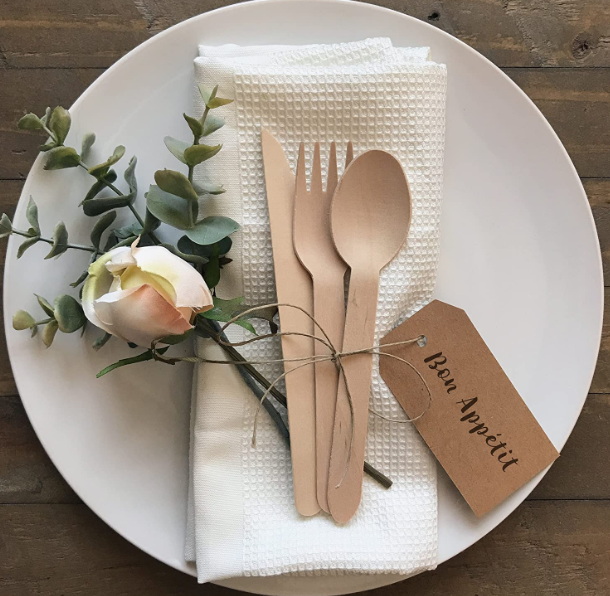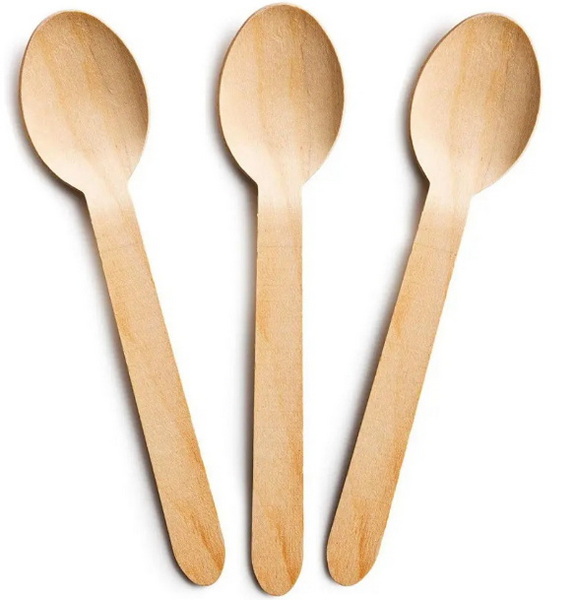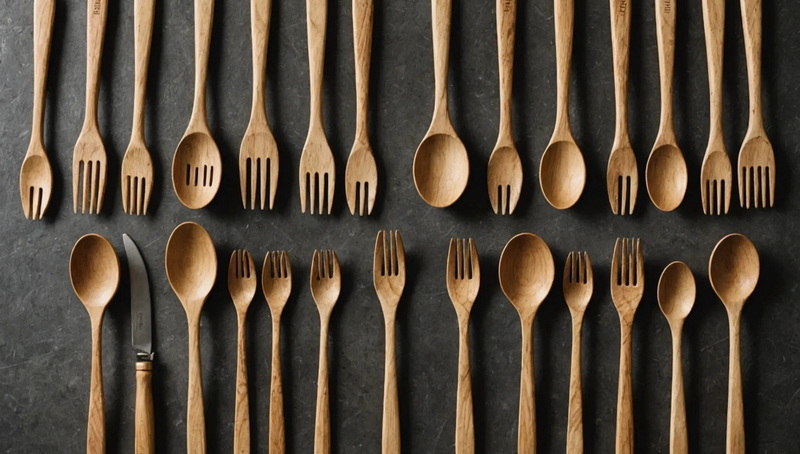
Content Menu
● Introduction to Disposable Wooden Spoons
>> Materials Used
● Heat Resistance of Disposable Wooden Spoons
>> Thermal Conductivity
● Safety Considerations
>> Chemical Treatments
● Practical Applications
>> Catering and Events
● Environmental Impact
>> Sustainable Sourcing
● Testing and Quality Assurance
>> Quality Control Measures
● Health Benefits
>> Antimicrobial Properties
● Market Trends and Consumer Behavior
>> Cost-Effectiveness
● Conclusion
● Frequently Asked Questions
>> 1. Can Disposable Wooden Spoons Handle Extremely Hot Foods?
>> 2. Are Disposable Wooden Spoons Safe for Health?
>> 3. How Should Disposable Wooden Spoons Be Stored?
>> 4. Can Disposable Wooden Spoons Be Used for Both Hot and Cold Foods?
>> 5. How Should Disposable Wooden Spoons Be Disposed Of?
● Citations:
In recent years, the demand for eco-friendly alternatives to traditional plastic cutlery has led to a surge in popularity of disposable wooden spoons. These utensils are not only biodegradable and compostable but also offer a sustainable solution for both hot and cold meals. However, one common question arises: Can disposable wooden spoons be safely used for hot foods? In this article, we will delve into the heat resistance, safety, and practicality of using disposable wooden spoons with hot dishes.

Introduction to Disposable Wooden Spoons
Disposable wooden spoons are typically made from sustainable materials like birch, maple, or bamboo. These materials are chosen for their strength, durability, and eco-friendliness. Unlike plastic, which can melt or leach chemicals when exposed to heat, wooden utensils are naturally heat-resistant and do not release harmful substances into food.
Materials Used
- Birch Wood: Known for its hardness and durability, birch wood is a popular choice for disposable wooden spoons. It is sustainably sourced and provides a smooth finish that prevents splinters.
- Bamboo: Bamboo is another fast-growing, renewable resource used for making disposable wooden spoons. It offers extra strength and flexibility, making it suitable for a variety of dishes.
Heat Resistance of Disposable Wooden Spoons
Wooden utensils are capable of withstanding high temperatures without losing their shape or integrity. They can handle temperatures up to 120°C, making them suitable for hot soups, pasta, and even grilled items. However, it's important to note that prolonged exposure to moisture can weaken the wood, so it's advisable to avoid soaking disposable wooden spoons in hot liquids for extended periods.
Thermal Conductivity
One of the advantages of wooden utensils is their low thermal conductivity. This means they do not conduct heat well, keeping your hands safe even when handling hot foods. This property makes them comfortable to use with hot beverages like coffee or tea.
Safety Considerations
When using disposable wooden spoons for hot foods, safety is paramount. It's crucial to ensure that the spoons are made from certified materials and do not contain harmful coatings or treatments. Non-toxic finishes are essential to prevent chemical leaching into food, especially when exposed to heat.
Chemical Treatments
Some manufacturers may apply chemical coatings to enhance durability or appearance. However, these coatings can leach harmful chemicals into food, especially when heated. Always choose disposable wooden spoons from reputable brands that use non-toxic finishes.

Practical Applications
Disposable wooden spoons are versatile and can be used in various settings, from casual picnics to formal catering events. They are ideal for hot meals like soups, stews, and pasta, as well as cold desserts. Their eco-friendly nature makes them a popular choice for environmentally conscious consumers.
Catering and Events
In the catering industry, disposable wooden spoons are gaining traction due to their sustainability and aesthetic appeal. They are suitable for both indoor and outdoor events, providing a natural and eco-friendly alternative to plastic utensils.
Environmental Impact
The environmental benefits of disposable wooden spoons are significant. Unlike plastic, which can take hundreds of years to decompose, wooden spoons are biodegradable and compostable. This reduces landfill waste and helps mitigate the plastic pollution crisis affecting marine ecosystems. Additionally, the production of wooden spoons requires fewer resources and generates less carbon emissions compared to plastic production[3][6].
Sustainable Sourcing
Wooden spoons are often sourced from sustainably managed forests, ensuring that the harvesting process does not harm the environment. This sustainable sourcing contributes to the conservation of natural resources and supports a circular economy[3][6].
Testing and Quality Assurance
To ensure the quality and safety of disposable wooden spoons, manufacturers conduct various tests. These include Dynamic Mechanical Analysis (DMA), nano-indentation, and Differential Scanning Calorimetry (DSC). These tests verify the strength, hardness, and heat resistance of the wooden cutlery, confirming its reliability for everyday use[2].
Quality Control Measures
Quality control measures are crucial to ensure that disposable wooden spoons meet food safety standards. This includes selecting certified materials, avoiding harmful coatings, and conducting regular inspections to prevent contamination[1][7].
Health Benefits
Wooden spoons are not only eco-friendly but also offer health benefits. They are non-reactive, meaning they do not leach chemicals into food, unlike some metal or plastic utensils. This makes them ideal for cooking acidic foods like tomatoes or citrus-based dishes[5].
Antimicrobial Properties
Some types of wood have antimicrobial properties, which can help prevent bacterial growth. This characteristic, combined with proper cleaning and drying, makes wooden spoons a sanitary choice for food preparation[5].
Market Trends and Consumer Behavior
The shift towards sustainable living has led to increased demand for eco-friendly products like disposable wooden spoons. Consumers are becoming more conscious of their environmental impact, driving market trends towards biodegradable and compostable alternatives to traditional plastic cutlery[3][6].
Cost-Effectiveness
While disposable wooden spoons may be slightly more expensive than plastic alternatives, their eco-friendly nature and potential for reducing long-term environmental costs make them a cost-effective choice in the long run[3].
Conclusion
In conclusion, disposable wooden spoons are indeed suitable for hot foods, offering a sustainable and safe alternative to plastic cutlery. They are heat-resistant, durable, and eco-friendly, making them an excellent choice for both personal use and commercial applications. However, it's important to select spoons made from certified materials and avoid harmful coatings.

Frequently Asked Questions
1. Can Disposable Wooden Spoons Handle Extremely Hot Foods?
- Yes, disposable wooden spoons can handle hot foods, but caution is advised with extremely hot, greasy, or oily dishes. For such foods, reinforced materials like stainless steel might be more suitable.
2. Are Disposable Wooden Spoons Safe for Health?
- Yes, disposable wooden spoons are safe for health if made from certified materials and processed properly. They do not leach harmful chemicals into food.
3. How Should Disposable Wooden Spoons Be Stored?
- Disposable wooden spoons should be stored in a dry place to prevent moisture absorption and mold growth. Avoid soaking them in water for extended periods.
4. Can Disposable Wooden Spoons Be Used for Both Hot and Cold Foods?
- Yes, disposable wooden spoons are suitable for both hot and cold foods. They are sturdy enough for dense textures and can handle temperatures up to 120°C.
5. How Should Disposable Wooden Spoons Be Disposed Of?
- Disposable wooden spoons are biodegradable and compostable. They should be disposed of in compost bins or industrial composting facilities for proper breakdown.
Citations:
[1] https://wonbonwood.com/disposable-wooden-spoons-safety/
[2] https://wonbonwood.com/testing-wooden-cutlery/
[3] http://thbamboo.com.vn/environmental-impact-of-wooden-disposable-spoons-vs-plastic-spoons-a-comprehensive-analysis-342581
[4] https://wonbonwood.com/wooden-cutlery-hot-foods/
[5] https://oishya.com/journal/why-should-you-cook-with-wooden-spoons-top-5-reasons/
[6] https://www.birchcutlery.com/news/why-your-restaurant-needs-wooden-spoons-84877908.html
[7] https://ecowaretech.com/can-wooden-disposable-cutlery-be-used-for-hot-food/
[8] https://www.alder-tek.com/sustainability-of-wooden-utensils-the-environmental-benefits/
[9] https://ecowaretech.com/can-disposable-wooden-cutlery-be-used-for-hot-food/
[10] https://www.allrecipes.com/article/is-it-safe-to-cook-with-wooden-spoons/
[11] https://www.alder-tek.com/what-makes-disposable-wooden-utensils-environmentally-friendly/
[12] https://www.anchenggy.com/blog/disposable-cutlery-food-safety-impact.html
[13] https://patents.google.com/patent/US8079390B2/en
[14] https://www.sulapac.com/blog/wooden-cutlery-pros-cons/
[15] https://droppe.com/blog/article/disposable-spoons-for-food-service-selecting-the-right-options/
[16] https://www.reddit.com/r/cookingforbeginners/comments/lympp2/are_wooden_utensils_safe_to_use/
[17] https://wonbonwood.com/quiz/environmental-impact-disposable-cutlery/
[18] https://www.anchenggy.com/blog/disposable-wooden-cutlery-guide.html
[19] https://www.linkedin.com/pulse/disposable-wooden-cutlery-safe-unraveling-truth-jason-inbnc
[20] https://www.cognitivemarketresearch.com/wooden-spoon-market-report

















